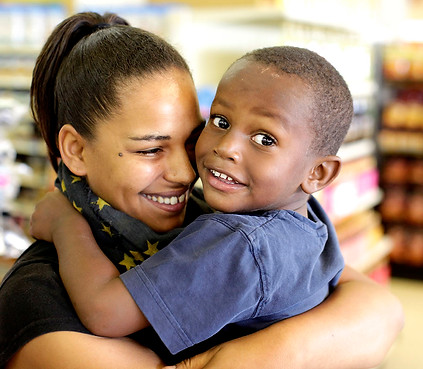
Healthy Ties that Bind
Challenge
Health disparity in DC emerges from inequalities in policy, clinical systems, and food and physical activity environments. These disparities hit the neighborhoods with high prevalence of poverty and lower education achievement with astonishingly higher rates of diabetes, heart disease, and stroke. These areas are medically underserved areas with insufficient primary care and specialist provider capacity; lack full-service hospitals and community clinics; lack healthy corner stores and grocery stores near public transportation or walking paths; and have a food service landscape dominated by fast/takeout restaurants with few healthy options. The primary care physicians and health centers are not referring individuals at risk of or with diabetes, hypertension, or cardiovascular disease to places for recreation, nutrition education or healthy food.
Intervention
ABCD, as a contractor and partner to Leadership Council for Healthy Communities in a CDC Racial and Ethnic Approaches to Community Health grant,
-
Established well-connected multidisciplinary teams citywide and ward-wide to make referrals across disciplines and preventive and clinical services. These engaged multi-disciplinary partners in wards 4, 5, 7, and 8 formed linkages among faith institutions, preventive services, such as healthy corner stores, recreation facilities, diabetes education programs, healthy food pantries, and clinical services offered through community clinics, faith-based organizations, and hospitals.
-
Pilot tested and implemented the communication protocol that actively permits promotion of partner activities and links residents to preventive and clinical services on an ongoing basis using posters, flyers, referral cards and newsletters that are displayed and passed out by partners.
-
Developed and disseminated attractive and effective communication pieces that encourage residents to use health insurance, seek health services, and adopt behaviors that reduce their risk of chronic diseases materials to DC residents to encourage use of insurance cards to access health services.
-
Provided faith-based organizations and health coordinators with education materials and technical assistance to share with their congregants and neighbors and to establish health environments that support and encourage healthy habits among the congregation.
-
Designed and disseminated in-person, written, and digital education materials to partners and the community.

Outcomes
-
Trained health coordinators from 25 faith institutions in prevention, treatment, and self-management of diabetes, eating habits, physical activity habits, elevated cholesterol, and hypertension, and connected them with multi-disciplinary teams to better promote services provided through collaboration of clinical and community linkages.
-
Prepared monthly messaging for 25 faith institutions that were used in faith institution bulletin boards, programs, sermons, classes, websites, and social media to increase self management of chronic diseases within the congregation.
-
Prepared a written five-year implementation plan for sustainability and establish agreements or Memorandum of Understandings with coalition partners for a five year period.